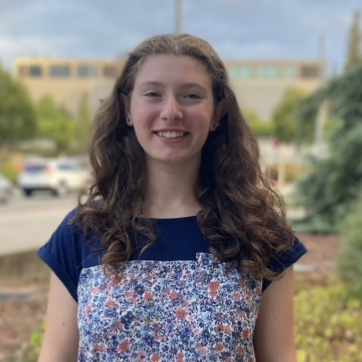The United We Stand Summit: A Message of Unity
October 6, 2022
On Sept. 15, 2022, the Biden Administration held the United We Stand Summit in order to oppose hate-fueled violence and create a unified America. The Legal Defense Fund states the official goals of the summit are “to counter the corrosive effects of hate-fueled violence and violent extremism on our democracy and public safety” and “put forward a vision of a more united America.” Countless Americans are involved in this pursuit, including bipartisan federal and state officials, law enforcement officials, civic and philanthropic leaders, media and culture representatives, and former members of extremist groups.
Today, hate and extremism have come to define the modern world. The reach of these concepts regularly inspires open communication, especially pertaining to halting the spread of hate. There are many people who believe that bigotry and prejudice are good things. However, students at IHS take the opposite approach. In defining hate, extremism, and intolerance, junior Demi Hawryluk explains, “You can be way too into something or way against something – to the point that it is almost like you are repulsed by it. You are all in.” Hate and extremism are comprehensive ideas that have long perverted American society. Senior Ty Lauritzen states, “[Hate is] going against what people want to the point that it hurts them.” Hate, especially widespread hate, can be harmful. The result of this hate is the corruption of American ideals.
In the year 2000, the Southern Poverty Law Center tracked 599 hate group across the U.S. This number rose exponentially, hitting 1,002 groups in 2010, and 1,020 groups in 2018. In 2021, 733 hate groups were still identified. Freshman Alex Karpman comments on the history of hate in America: “In the past, lots of times, America had racism. There was segregation, there was a civil war, there was lots of sexism, lots of homophobia. So, I think there has been lots and lots of hate in the past – and now.”
Tolerance is often perceived as the first step to opposing hate and creating a path towards acceptance. While the Summit is primarily centered on unity, it also prioritizes tolerance. The White House Briefing on the Summit states, “When we cannot settle our difference of opinion peacefully, and when ordinary Americans cannot participate in the basic activities of everyday life… without the fear of being targeted and killed for who they are, our democracy is at risk.” Sophomore Sara Cizek points out that humanity’s capacity to endure adverse conditions is instrumental in establishing a peaceful society. In describing tolerance Cizek says, “People do not hate each other [and are not] rude to other people. [Tolerance is] not having to fight them about their religious beliefs or beliefs in general.”
The next step in opposing hate is to inspire unity. Unsurprisingly, the United We Stand Summit is centered around unity. As previously stated, the Summit’s participants originate from all corners of America and range in cultural and religious backgrounds, as well as gender, race, experiences, and occupations. They are each chosen for their past work in inspiring unity and working to make the world a better place. These are people that embody the objectives and values of the Summit. Hawryluk defines unity as “Every person involved [being] thoroughly together, heard, respected, and treated as equals… nobody is left behind, left out, and there is no difference in how people are. Everybody is seen as equal.” Lauritzen adds, “Everybody is on the same wavelength, thinking the same thing. It does not have to be exactly the same, but [it should be] moving in the same direction.”
The Summit’s focus on unity is critical in accomplishing their goals. The United We Stand Fact Sheet lists new actions that will address hate-motivated violence and foster national unity. These initiatives include strengthening the response to hate crimes and reinforcing anti-hate policies within government institutions. The Summit will introduce a series of initiatives, such as establishing a new Dignity.us Citizen Initiative based in creating communication, as well as disbanding online hate via technology and social media companies. The New Pluralists, a group of philanthropic and field leaders, are giving $1 billion to increase diversity support. Their hope is to utilize the resources, testimonies, and ideas that already exist within the population in order to inspire hope and realistic solutions. The Summit is reaching out to the community to collect commitments to stand against hate-fueled violence, create A Nation of Bridge Builders through community and interfaith organizations, and honor those who are uniting America. These new initiatives and ideas can only be accomplished by working in tandem. Ultimately, when people stand together, less communities are impacted by hate.
On June 12, 2016, at Pulse Nightclub in Orlando, Florida, Brandon Wolf witnessed the murder of 49 LGBTQ+ black people and the wounds of 50 more. He describes it as “the human cost of hate-violence” and “that is what hate violence does. It shatters communities. It shreds lives. And it leaves deep tangled scars in its wake.” On Thursday’s United We Stand Summit, Brandon Wolf introduced Kamala Harris who followed Wolf’s story with a message for the world. She said, “We have seen our neighbors, our friends, our loved ones, attacked simply because of who they are or where they pray.” Therefore, she continued, “A harm against anyone of us, is a harm against all of us.” Throughout the United We Stand Summit, countless people spoke of hate, extremism, supremacy, and tragedy. It is their hope that society ensures that their voices are heard, recognized, and validated. As Kamala Harris asserts, “[We must have] the determination to find hope in the midst of despair. The determination to meet darkness with light. To meet division with unity.”



Naomi Frishman • Oct 8, 2022 at 9:10 pm
Yeah Shira!